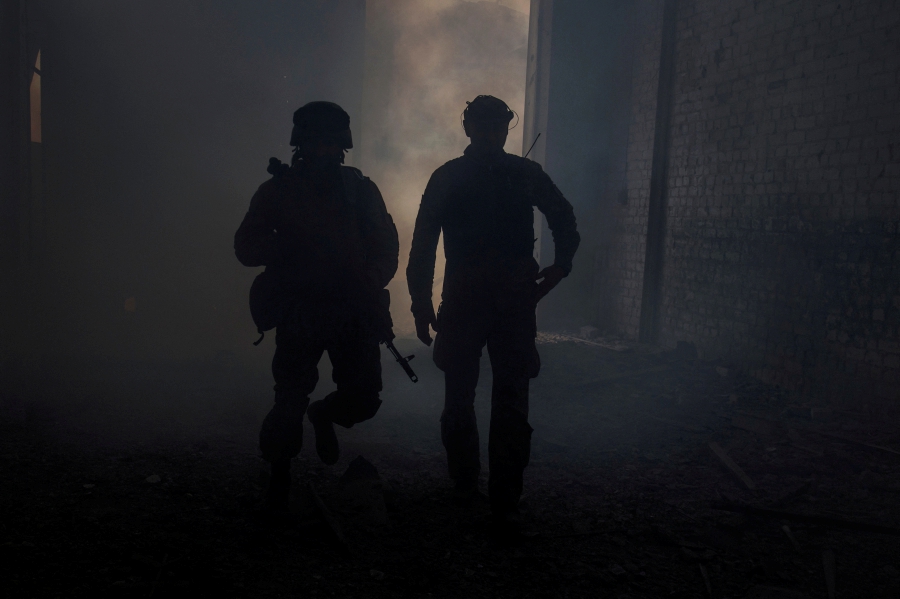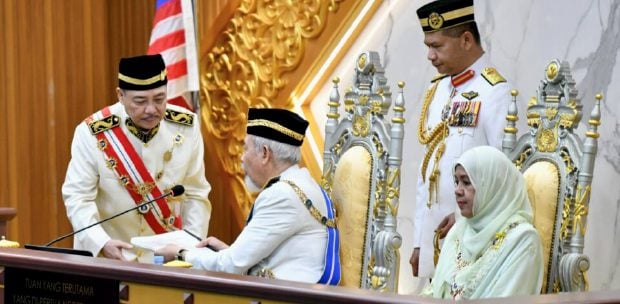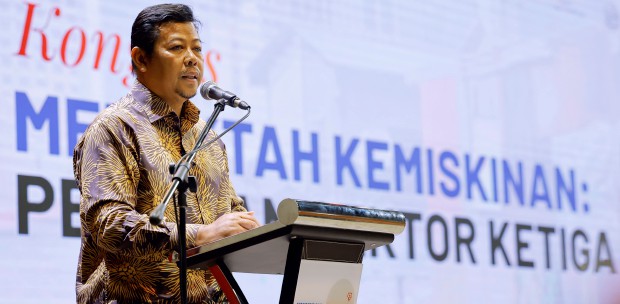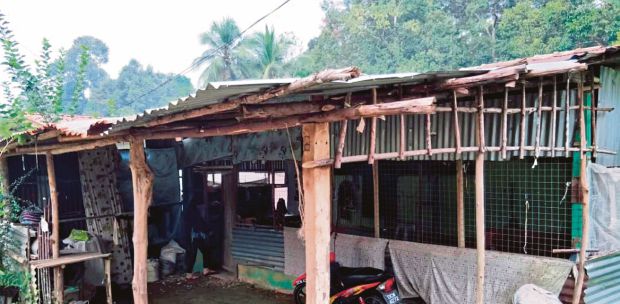POVERTY, a condition in which a person or community lacks the financial resources and essentials for a minimum standard of living, is no "accident". It is just like war, "man-made".
War fuels poverty within the conflict zones and even beyond. It causes death, injury, destruction and homelessness to those affected.
Regarding the Russia-Ukraine war, United Nations Secretary-General Antonio Guterres recently stated that "for those on the ground, every day brings new bloodshed and suffering.
"And for people around the world, the war is threatening to unleash an unprecedented wave of hunger and destitution, leaving social and economic chaos in its wake."
Since war and poverty are man-made, with the first as one of the causes of the latter, both can be resolved through responsible human actions and international legal means so that everyone can live in peace and enjoy an adequate standard of living.
War has deprived many people of peace and even a dignified life, but international law does not prohibit all wars. For example, it does not prohibit civil wars, although it does regulate the conduct of warring parties in all wars.
Only inter-state war is prohibited, but the war in self-defence and the war authorised under the UN "collective security system" are permitted.
International law calls for the peaceful settlement of international disputes, but often some self-centred countries prefer to use force to resolve their disputes, leading to misery in conflict zones and even beyond.
The initiator of the war, whatever the country, is apparently responsible under the UN collective security system, but due to structural flaws in the system, if the initiator of the war is a permanent member of the UN Security Council, it can use its veto to escape the council's punitive actions.
On April 26 this year, the UN General Assembly unanimously adopted a resolution requiring the five permanent members of the Security Council to justify their use of the veto, but this resolution is merely a recommendation.
This means that any veto-wielding member of the UN Security Council, if happened to be involved in an aggressive war, may veto the council's decision against itself or its allies without explaining why.
An aggressive war inevitably gives rise to defensive war, the former is illegal and is also considered a crime against peace, while the latter is lawful.
War, if aggressive, is certainly evil, but some believe all wars, regardless of their nature, whether offensive or defensive, are evil as they bring no good to humanity.
Jimmy Carter, the 39th US President, was quoted to have said "war may sometimes be a necessary evil. But no matter how necessary, it is always an evil, never a good."
War is bad wherever it happens because it not only brings death, destruction, homelessness, deprivation of economic opportunities and other misfortunes to the people of the conflict areas, but it can also have devastating economic effects on people in other parts of the world.
It may disrupt export and import, raise food prices, and fuel global poverty.
The international effects of some wars are greater than others. The Russia-Ukraine war, for example, "squeezes food supplies, drives up prices" and "threatens vulnerable nations".
Russia and Ukraine, as pointed out by the Food and Agriculture Organisation of the United Nations, are among the top three exporters of wheat, corn, rapeseed, sunflower seeds and sunflower oil, and they are also exporters of fertilisers used in agriculture around the world.
However, the export of agricultural products from these countries has been severely affected by the war.
Ukraine, once known as one of the breadbasket of the world, suffered a severe blow from the war, its ports are closed, which make exports difficult.
Russia's exports have also been affected by economic and financial sanctions imposed on it.
The sudden and sharp decline in exports of wheat and cooking oils from Ukraine and Russia due to the war threatens food security around the world, as we are already seeing hikes on food and animal feeds prices internationally.
This could cause an escalation in hunger, especially, "in food-insecure hotspots", like Africa.
Countries that rely heavily on wheat and cooking oils from Ukraine and Russia will have to find alternatives to import essential products, which may be hard to find, and even if found, imports will be costly due to high demand.
People, especially the poor, may not be able to buy, and this in turn may lead to hunger and poverty in the affected countries.
Given the dreadful effects of war on human life, infrastructure, economy, and the poverty it may cause around the world, it is safe to say that war brings no good to humanity and should be ceased.
The warring parties should give diplomacy a chance and find a negotiated settlement to their conflicts.
Should negotiations fail, the parties should not return to war but instead seek help from a neutral third party, such as the good office of the UN Secretary-General, to assist them to return to the negotiating table, find a negotiated settlement and end the war.
The UN Secretary-General, as an important peacemaker, can play a role in the peaceful resolution of inter-state and internal conflicts.
Given the fact that every conflict is capable of peaceful resolution, let it play its role. If successful, it can help bring peace and contain poverty at the same time.
*The writer is a professor at the Ahmad Ibrahim Kulliyyah of Laws, International Islamic University Malaysia (IIUM)





